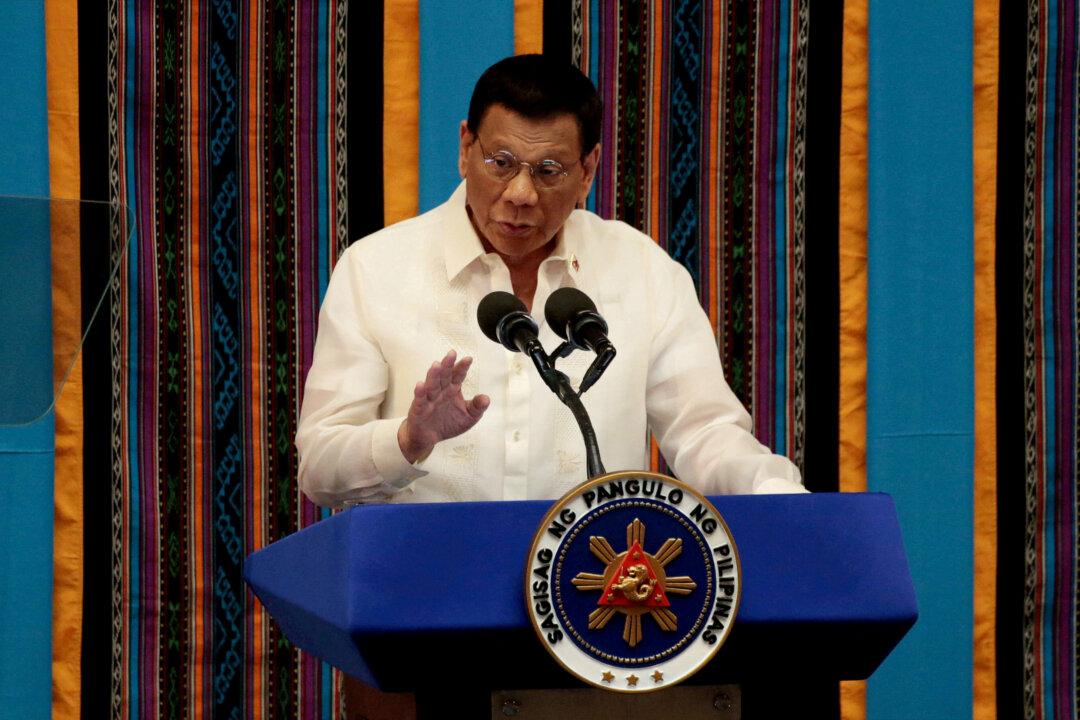MANILA—President Rodrigo Duterte said on Tuesday the Philippines would not waver in defense of its interests in the South China Sea, even though he had barred his ministers from talking about the situation there in public.
China’s maritime conduct has been a constant problem for Duterte but he has refrained from criticizing Beijing and instead praised its leadership, hoping to secure investment.





